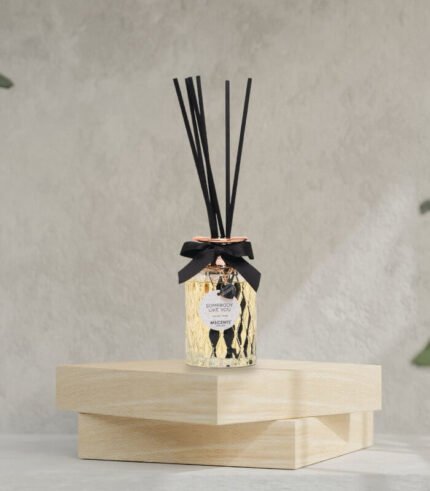Imagine walking down the pavement and experiencing the first drops of rain, studying in a café or walking through a freshly mowed grass field. You imagined the smell in all these scenarios, didn’t you?
This is what the true power of scent is! In a world where colours dance upon the canvas of our imagination and melodies whisper enchantingly in our ears, there exists a lesser-known language that captivates our senses in a profound manner.
Fragrances unveil an unseen realm, blooming emotions, invoking forgotten memories, and painting vivid landscapes in our minds.
Our sense of smell does wonders in our everyday lives and we may not even realise it. From helping us taste food, to giving us warning sings, our sense of smell, although powerful, varies from individual to individual.
While to some of us, the smell of rain, freshly roasted coffee beans and freshly mowed grass may bring us joy, to others, it may be a nuisance.
Ever wondered why? That is because our unique perception of smell stems from a combination of factors such as genetics, past experiences, and cultural backgrounds.
Detecting and Perceiving Scents
People can detect anywhere from 10,000 to 100 billion, or possibly even more, different odours. This wide range is due to the fact that each of us has a unique combination of odour-detecting cells in our noses, resulting in varying levels of sensitivity to smells.
In fact, when two people smell the same thing, their perceptions can be very different, as explained by Gary Beauchamp, Ph.D. There are about 400 genes coding for the receptors in our noses, and according to the 1000 Genomes Project, there are more than 900,000 variations of those genes.
These receptors control the sensors that determine how we smell odours. A given odour will activate a suite of receptors in the nose, creating a specific signal for the brain.

Painting a Picture
Even with the different perceptions we may have of a certain scent, scents possess a remarkable ability to evoke a psychedelic of emotions within us.
The delicate aroma of freshly bloomed flowers can stir feelings of joy and serenity, while the soft and buttery scent of freshly baked bread may ignite a sense of nostalgia and contentment. These emotions are often attached to a memory or a scenario we tend to imagine.
The warm, comforting embrace of a familiar fragrance can instantly transport us back to cherished memories, evoking laughter, love, or even a hint of melancholy, or even make us envision a sight before us that we may never have seen, but have heard of perhaps. For example, when I smell something rich in cinnamon and peppermint, it takes me to a small cottage looking out at misty and icy mountains.
I have never personally experienced this, but the cool of the peppermint makes me relate to the frosty breeze of winter and the cinnamon brings a waft of warmth under a soft blanket, hence the scenario that I associate these scents with.
A Universal Dialect
See how the scent triggers an emotion that triggers us to think of a memory or assumed scenario to paint an entire picture in our minds? Fascinating, isn’t it?
Whether it’s the refreshing zest of citrus or the soothing embrace of vanilla, scent weaves a powerful tapestry that intertwines with our emotions, creating a sensory symphony that touches the depths of our souls.
Yet, as subjective as interpretation may be, the language of scent remains a universal dialect. Scent is a language of nature, speaking through molecules that reach deep within us, transcending cultural and language boundaries.
So, let us revel in this world of olfactory wonders, where fragrances weave narratives and transport us to realms unseen. Embrace the stories whispered by the fragrant petals, exotic spices, and ancient woods.
Let scent be your passport to a world where imagination knows no bounds, and the magic of interpretation unlocks the secrets of an enigmatic language.
Recommended For You
-
 Fine Fragrance Series Reeds Diffuser (150ml)$49.90 subject to 9% GST
Fine Fragrance Series Reeds Diffuser (150ml)$49.90 subject to 9% GST -
 Hotel Inspired Series Reeds Diffuser (150ml)$29.90 subject to 9% GST
Hotel Inspired Series Reeds Diffuser (150ml)$29.90 subject to 9% GST
 Accessories
Accessories
 Botanical Essential Oils
Botanical Essential Oils
 Candles & Burners
Candles & Burners
 Gift Sets & Bundles
Gift Sets & Bundles
 Home Care
Home Care
 Perfumes
Perfumes
 Reed Diffuser
Reed Diffuser
 Seasonal & Deals
Seasonal & Deals
 Ultrasonic Diffusers
Ultrasonic Diffusers

